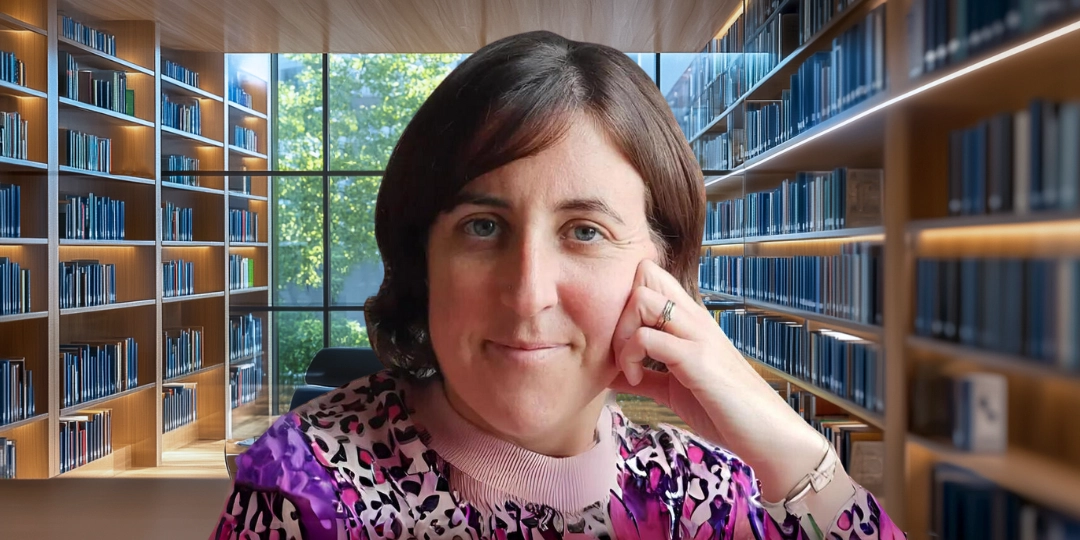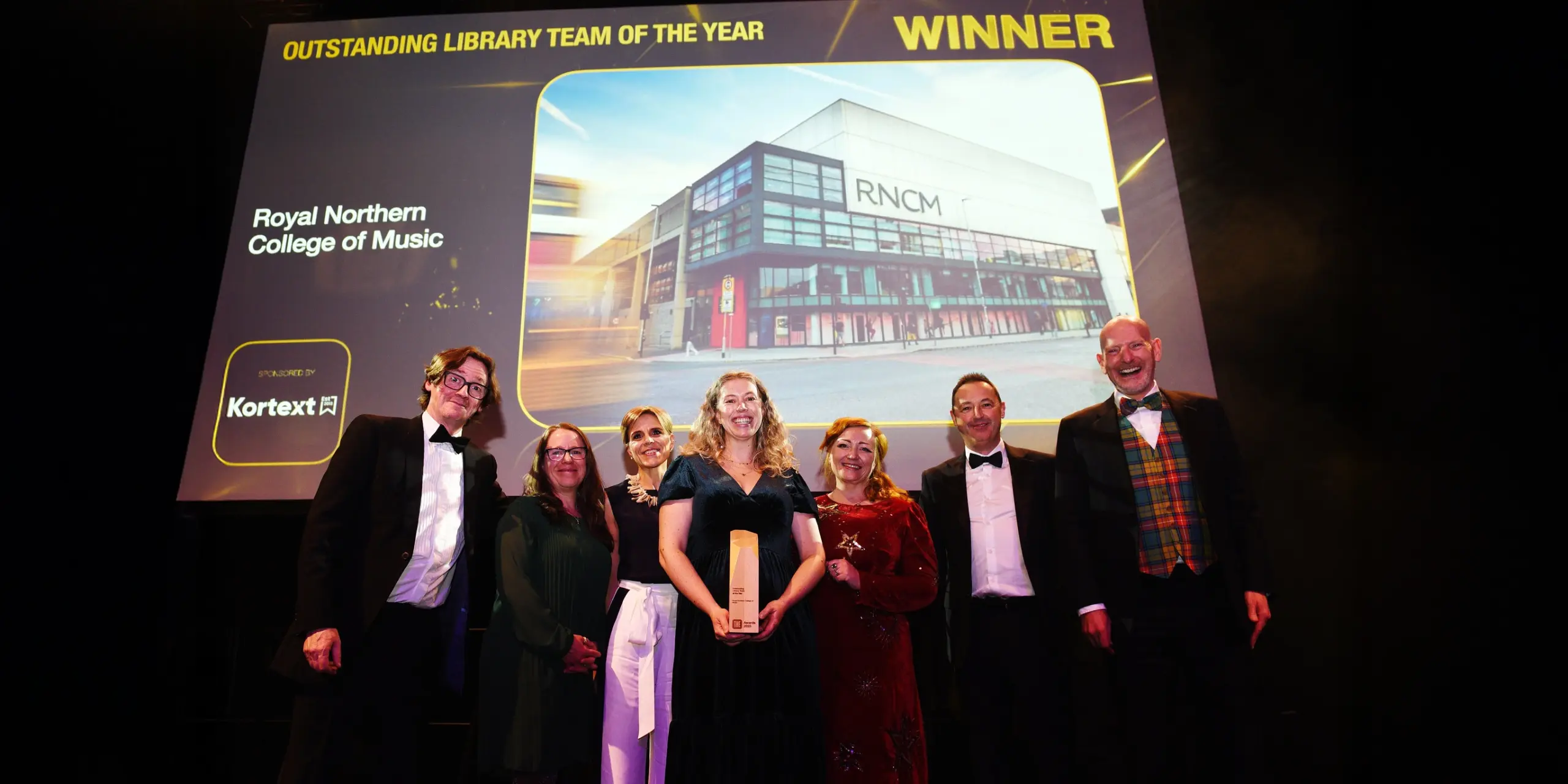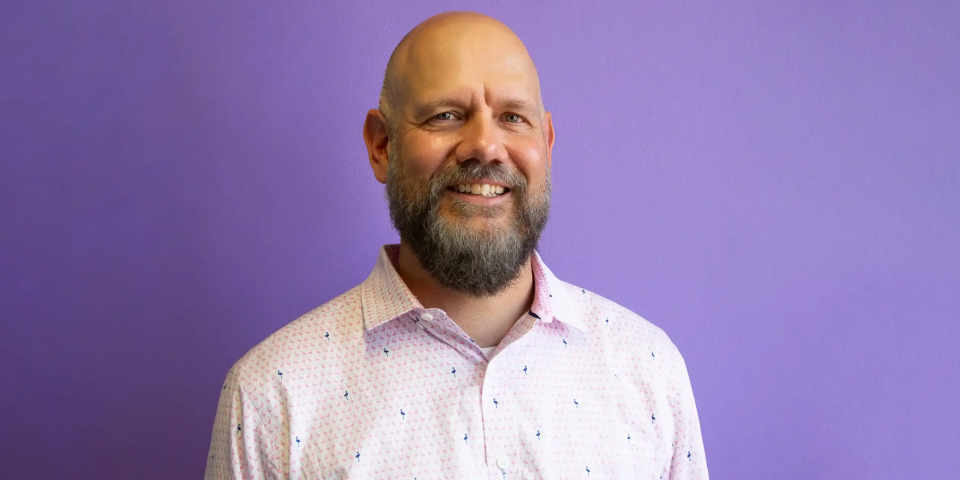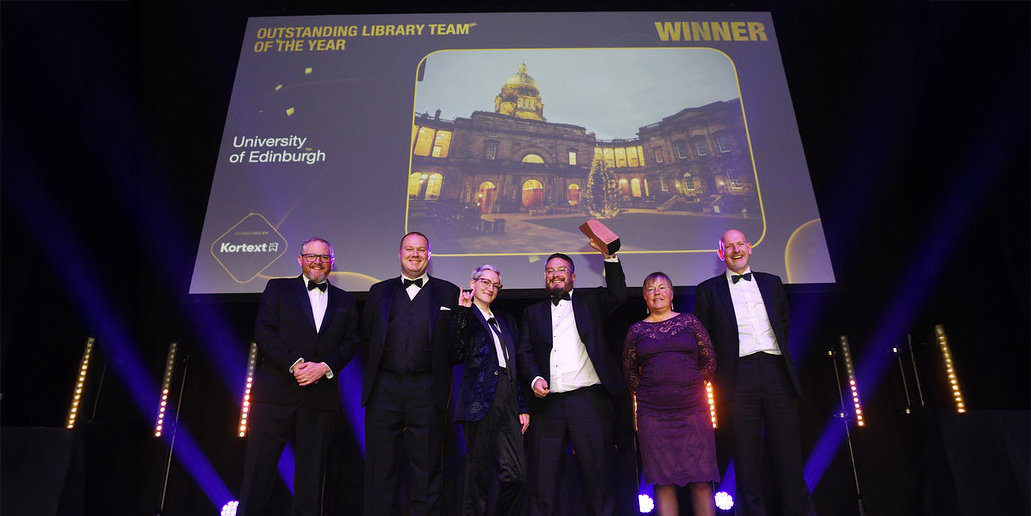An interview with Sarah Ison from the University of Sussex
What’s it like to support students around the world who study online and never visit the university library in person?
We spoke to Sarah Ison, Online Distance Learning Librarian, from the University of Sussex to find out!
How and when did you decide to become a librarian?
It wasn’t until I was doing my geography degree at the University of Brighton. I had a friend who was a student shelver and he told me about a vacancy. I started shelving and I really enjoyed it. That put the idea in my head of looking for library work after graduation.
I got a post as a library assistant at Brighton. Once I was there, my boss encouraged me to do the MA at Brighton to get professionally qualified.
“I was guided into it, and it was the right decision for me.”
After the MA, I worked my way up to being a senior librarian at Brighton. I moved into my current role at Sussex nearly four years ago.
What does your current role involve?
In 2018, the first fully online course began at Sussex – a Master’s in International Marketing – with five students. Now we have 2,000 students enrolled on nine courses. Our online programmes have grown massively, exceeding many targets and expectations.
We have students in more than 130 countries. The average age of our students is around mid-30s. They’re typically professional people studying part-time and juggling a lot of responsibilities.
“It’s a big international community that we’re supporting, which feels like a privilege.”
We have six intakes a year. It’s like having the start of an academic year six times over! Each module lasts seven weeks, so as soon as it starts you’re thinking about the next intake.
We work closely with our distance learning partners and our academics to provide appropriate resources for the study online students. I ensure that reading lists are in place, oversee the purchase of eBooks and eTextbooks, and provide academic skills support.
We deliver a live session for new students, which is an overview of what the library offers. These sessions are always recorded so students can choose to watch them in their own time.
In addition, we have a suite of videos that students can access at any time, which go into more detail about searching the library, referencing, and plagiarism.
We offer students 1-1 Zoom appointments, at a time convenient for them, to help with any other questions they might have.
“We do all we can to make it as easy as possible, giving students resources they can access in their own time”.
Finally, we get email enquiries regularly, for example students requesting eBooks we don’t have which we then purchase, and support with referencing and other academic skills queries.
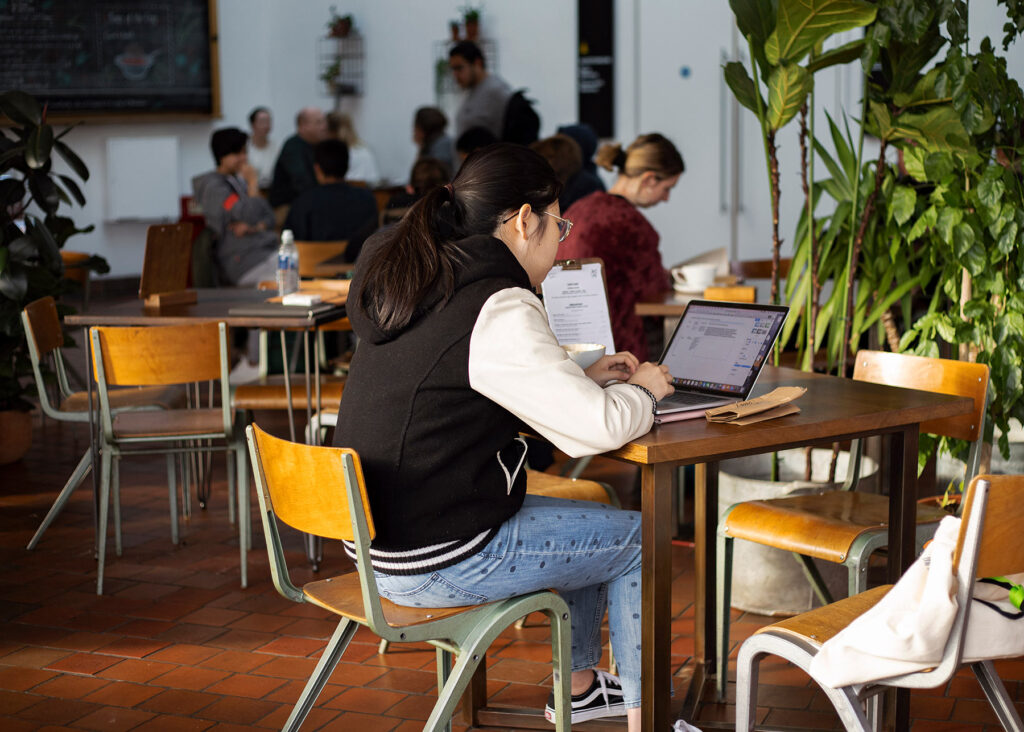
What’s the best thing about your job?
The students are so grateful for our help. It’s satisfying when you can provide them with a resource they haven’t been able to locate or access in full text.
“The best thing is knowing you’ve helped someone who was struggling – that’s really rewarding.”
Our students haven’t got much time. If they need support, we respond to them straightaway and meet with them as soon as possible. Afterwards, they go away feeling better equipped.
Are there any challenges you face?
As in all aspects of life, information overload is an issue. Even though you’ve shared everything and covered every base, students still miss library communications. I don’t blame them – they’re swamped by information.
“I think that one challenge is getting our voice heard and being as clear as we can.”
I’m currently redeveloping the Study Online Student support site in our VLE. That’s a huge priority for me, so students can find what they want when they need it.
We find online connectivity is another challenge. We have students in so many countries around the world, including those out on projects in remote areas where there’s no wi-fi.
They’re trying to study, but that’s really hard if what they’re reading can only be downloaded for 24 hours, or they can only download 2 chapters.
“Restrictions around access to content really can impact students who are not online 24/7.”
In terms of e-resources, cost and licence restrictions can be difficult to navigate. There are times when we have to explain to an academic that we can’t provide their favourite text as an eBook.
Nevertheless, we’re able to get the majority of resources we need through a combination of good eBook licences and digitisations from print sources.
How do you think that university libraries might evolve over the next decade?
One thing that’s not going to change is students as consumers or customers.
As much as possible needs to be available to students at the point of need, giving them the ability to access training and information without relying on opening times or staff availability.
“The student voice is incredibly important.”
One aspect of Sussex’s strategy is co-creation. We’re working with students to develop library services, to make sure we’re providing what they want.
Open Access (OA) and Open Educational Resources (OERs) will keep growing. Sussex released its first OA psychology textbook, which is being used by first and second year students. Experts in the field have come together and created an amazing book with no ongoing access payments.
Our online library space needs to continue developing. Ideally, we’d like a one-stop shop for students. At the moment that’s impossible because of licence restrictions and multiple platforms, but maybe it could happen in the next 10 years.
“It would be amazing if things could evolve in such a way that a student only had to use one search box”.
I think librarians are going to be as important as ever – students are humans who want help from other humans. AI will have a part to play, but I don’t think it will replace us.
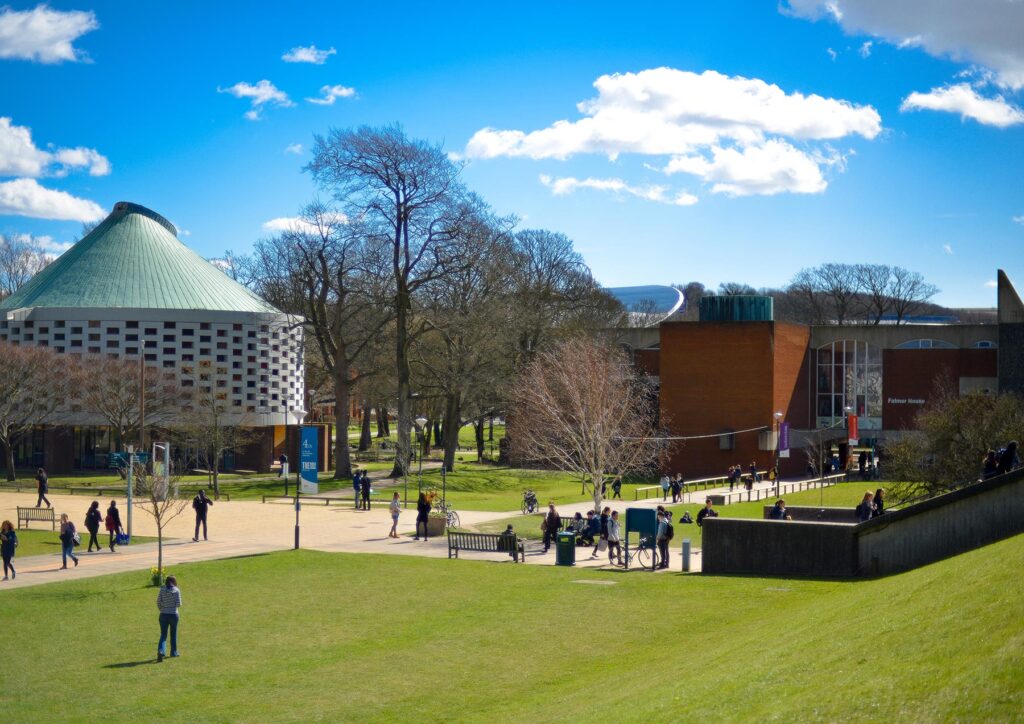
How do you relax outside work?
I love knitting. In fact, I just won a prize! I entered a little knitted basket of fruit and vegetables into a local show, and it won best handicraft item.
A friend said, ‘what sort of wizardry is this?’ about my knitting. And he’s right – it’s incredible that you can turn a ball of yarn into a toy or a jumper or a sock. It’s so satisfying.
I like going out at the weekends with my husband and two children. We go out exploring, looking at heritage sites and taking train journeys to explore.
What’s your favourite book?
That’s very difficult because obviously I’ve got loads of favourite books. I was torn between two…
One is about the 1996 Mount Everest disaster. It’s from the different perspectives of the guides and climbers and is called ‘The Climb’ by Anatoli Boukreev. I was 16 when I bought it and ever since then I’ve been fascinated by Everest.
The other is a graphic memoir by Lucy Knisley called ‘Kid Gloves’. It’s about when she had her baby. I was pregnant at the same time, so I loved following her tweets and I was excited to buy her book.
What’s your favourite song/album/artist?
Now that is tricky. I like 90s music. I saw Darren Hayes, who was one half of Savage Garden, in concert a while back. They’re one of my favourite bands, although disbanded, so I’ll say their two albums and my YouTube 90s playlist!
If you could send one message to library users, what would it be?
Find out as soon as you can about the support available to you. Get a head start!
It will save you time in the long run if you know from the beginning where to search for library resources and how to get help with referencing.
Thank you, Sarah, for a really enjoyable conversation. Happy knitting!
The images in this blog post are copyright (2023) University of Sussex and used with permission.
If you enjoyed this, and would like to be featured, please email marketing@kortext.com or drop us a comment below!

